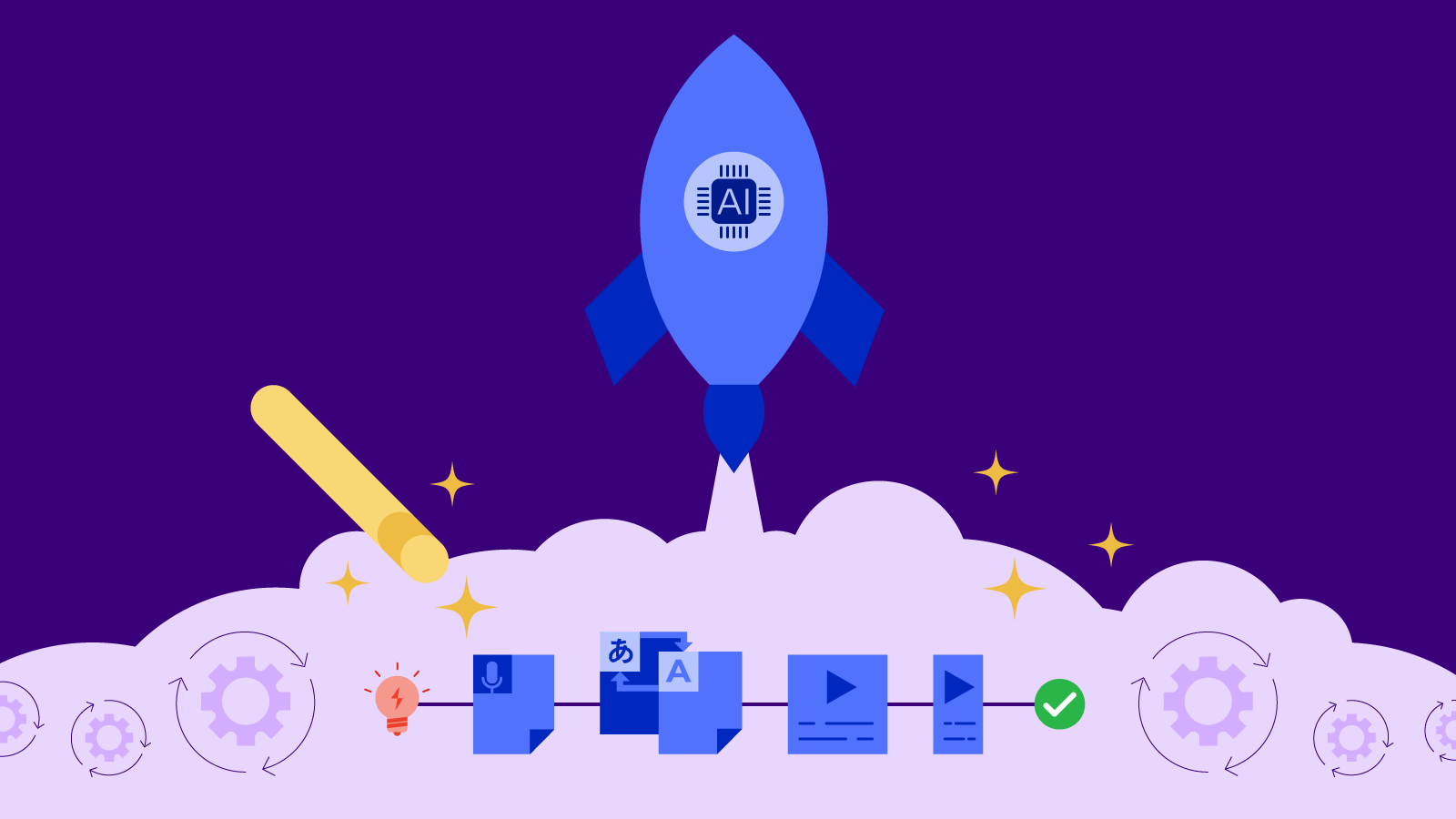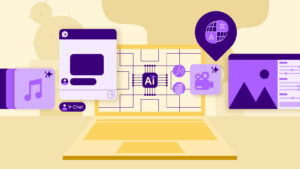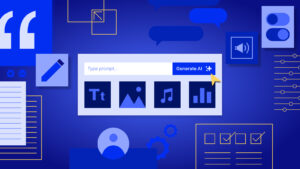In the ever-evolving landscape of modern business, managers face a constant challenge: to optimise processes, boost productivity, and stay ahead of the competition. Thankfully, generative artificial intelligence (AI) has emerged as a transformative tool that can help organisations achieve unparalleled efficiency. Here are ten ways managers can harness generative AI to enhance productivity and streamline operations.
What is Generative AI?
Generative AI is a subset of artificial intelligence that focuses on generating content, be it text, images, or other forms of data, with minimal human input. This technology has made significant strides in recent years, enabling it to create realistic and high-quality outputs. Here are ways managers can leverage generative AI for efficiency:
1. Automating Content Creation
One of the most exciting applications of generative AI is its ability to automate content creation. Whether it’s generating reports, product descriptions, or marketing copy, AI can significantly reduce the time and effort required for content generation. Managers can set the parameters and guidelines, and AI will produce high-quality content, leaving team members free to focus on more creative and strategic tasks.
One example is ChatGPT, an AI-powered language model developed by OpenAI. It can understand and generate human-like text based on the input it receives. ChatGPT is a versatile tool that can perform various tasks, like answering questions, translate texts, and write articles.
2. Enhancing Creativity
AI can be a valuable creative partner. For design teams, generative AI can provide suggestions, create visual elements, or even help design entire campaigns. This collaborative approach can spark new ideas and streamline the creative process, ultimately leading to more innovative solutions. One example of such softwares is Midjourney, which uses the prompts you provide to create images.
3. Improving Customer Support
Generative AI-powered chatbots are revolutionising customer support. They can handle routine inquiries, troubleshoot issues, and provide information 24/7. This not only improves the customer experience but also frees up human support agents to focus on more complex and specialised customer needs. An example of such chatbots is ChatBot.
4. Data Generation and Analysis
Generative AI can help in the generation of synthetic data for various applications, including testing, training AI models, and maintaining data privacy. Additionally, it can process and analyze vast datasets, uncovering patterns and insights that might be missed by human analysts, which is invaluable for data-driven decision-making.
5. AI-Powered Transcripts
Managers are no strangers to the time-consuming task of note-taking during meetings. AI-powered transcription services can revolutionise this aspect of work processes. AI transcription like オーリスAI have the ability to transcribe spoken content with remarkable accuracy. Gone are the days of deciphering hastily scribbled notes, struggling to recall what was said or manual transcription tasks.
Transcripts also make meeting content accessible to all team members, including those who couldn’t attend in person or have hearing impairments. This inclusive approach ensures that everyone can stay informed and participate effectively, fostering a more cohesive and productive team.
6. Streamlining Development
Generative AI is used in software development for code generation, making it faster and more efficient. Developers can use AI-generated code as a starting point, reducing repetitive coding tasks and enabling them to focus on more complex and strategic aspects of application development.
7. Workflow Automation
Generative AI can create automated workflows for repetitive tasks and processes within an organization. It can also optimize task scheduling, resource allocation, and other workflow-related activities, leading to smoother operations and improved efficiency.
8. Language Translation and Localization
For businesses with global reach, generative AI can automate translation and localization tasks, making it easier to create content for international markets and reducing the time and effort required to adapt content for various regions.
9. Innovation and Idea Generation
Generative AI can assist in brainstorming sessions and idea generation. By providing a fresh perspective and generating creative suggestions, it can ignite innovation within teams and help them think outside the box.
10. AI-Powered Subtitles
Video content has become a dominant medium for communication in the digital age. AI can assist in improving this content by automatically adding subtitles to videos. Here’s why it’s a game-changer:
Expanded Audience Reach: Subtitles make video content accessible to a global audience. With AI-generated subtitles available in multiple languages, your organization can reach a broader demographic, expanding your market and brand presence.
Improved User Experience: Viewers appreciate the convenience of subtitles. Whether they’re watching videos in noisy environments, on mute, or simply prefer reading along, subtitles enhance the user experience. This attention to user preferences creates a positive impression of your brand and content.
When done manually, subtitling can be a tedious task that takes hours to complete. But with softwares like オーリスAI can hugely improve your team’s efficiency by automatically generating closed captions and translated captions for your videos. Auris AI provides the first 30 minutes of subtitling for free, and they offer one of the most affordable pricing plans in the market.
In conclusion, generative AI is a transformative tool that managers can harness to enhance efficiency and drive success in today’s business environment. By automating content creation, improving customer support, streamlining workflows, and fostering innovation, generative AI can free up human resources to focus on more creative and strategic tasks. As AI technology continues to advance, its potential to revolutionise the way organisations operate and innovate is boundless. Managers who embrace generative AI can position their teams and organisations for a more efficient and innovative future.






